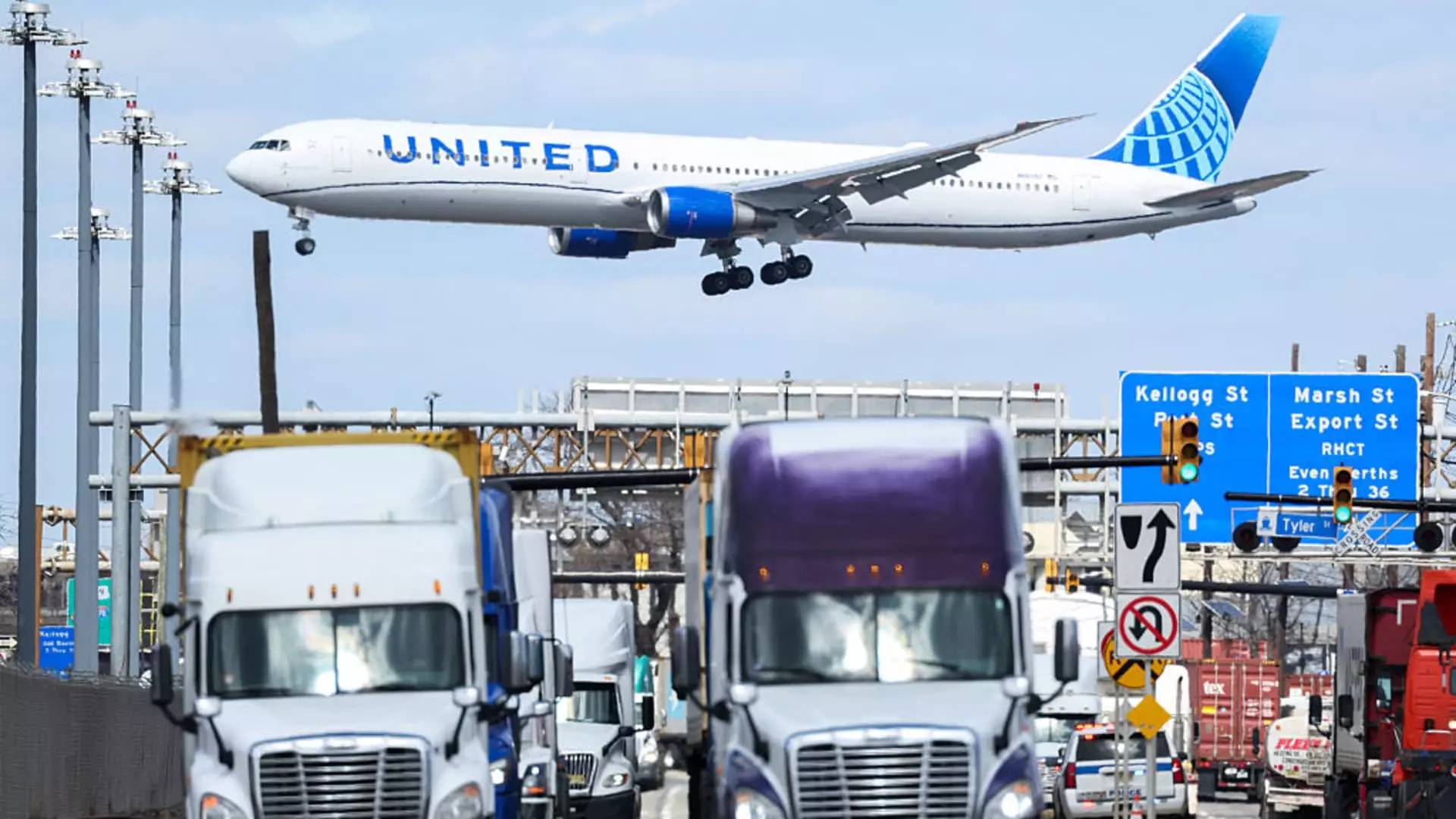In an era marked by economic volatility, United Airlines’ decision to maintain its full-year financial forecast while acknowledging a potential recession is both audacious and unsettling. The airline presented two distinct profitability scenarios: one that aligns with current market conditions and another that accounts for a downturn. It raises an essential question—how can businesses confidently plan in a landscape characterized by unpredictability? This dual forecast reflects a larger trend in corporate risk management where companies must prepare for the worst while hoping for the best. United’s stance that the macroeconomic environment is “impossible to predict” underscores the harsh reality that businesses are navigating a rapidly shifting terrain.
The Profit Paradox: Navigating Domestic and International Demand
Despite clear signs of economic turbulence, United Airlines still anticipates profitability, a sentiment echoed industry-wide among major carriers. While domestic travel bookings perhaps lack the expected vigor, international travelers are coming out in droves, willing to spend more for premium experiences. Their strategy to slash domestic flight capacities by 4% while simultaneously boosting international routes presents a calculated risk that could lead to substantial financial rewards. Is this a short-term fix or a sustainable strategy? Only time will reveal whether these measures will shield United from macroeconomic challenges or expose them to greater vulnerabilities.
CEO Scott Kirby’s Vision: Thrusting Forward with Confidence
United’s CEO, Scott Kirby, remains bullish about the company’s long-term strategy, even amid challenging forecasts. The airline is betting on a multi-year plan that has, according to Kirby, proven effective across varying demand cycles. This vision is commendable but also raises questions: is it prudent to be so optimistic in an uncertain economy? The confidence displayed by industry leaders like Kirby could either inspire trust among investors or create a false sense of security, risking a rude awakening should market dynamics shift unexpectedly.
The Earnings Beat: A Light Amid the Gloom
United’s reported earnings for the first quarter exceeded expectations, revealing a profit of $387 million compared to the prior year’s losses. Such figures would typically herald a positive outlook; however, one must examine the broader context. Despite profitability, there was a notable fall in domestic unit revenues—down 3.9% year-over-year. If domestic demand continues to stagnate, we must question how long United can sustain its upward trends. The airline’s success hinges not only on international fares but also on how deftly it can retain a foothold in its domestic market.
Capacity Management: Balancing Supply with Demand
The decision to pare back flight capacities indicates that United is not merely a passive observer in this unpredictable economic climate. By aligning service offerings with demand realities, the airline aims to enhance profitability, especially as global travel gradually rebounds. However, this capacity trim comes with a risk; reducing domestic flights might alienate loyal customers, ultimately pushing them to competitors like Delta, who are similarly cautious with their growth initiatives. In an industry already chastened by fierce competition, one cannot help but wonder if this strategy will backfire, stifling long-term growth for short-term gains.
Premium Cabin Demand: A Silver Lining or a Mirage?
As noted, United has experienced a 17% surge in premium cabin bookings. This is an intriguing dichotomy reflecting the evolving consumer landscape. Higher-income travelers seem unfazed by economic uncertainty, leading to increased spending on premium services. However, one must also ponder—are these bookings a fleeting trend? If economic instability deepens, will this segment of the market remain resilient, or will we witness a sudden retraction in demand? This precarious dependency on a nominal demographic could create significant financial strain if not managed with foresight.
The unfolding narrative of United Airlines is emblematic of broader economic discourses affecting numerous sectors. The airline’s strategies reflect both an acute awareness of external realities and a steadfast commitment to its vision. Whether this approach proves robust against the tempestuous backdrop of economic uncertainty remains an apprehensive concern for stakeholders in the aviation industry.

